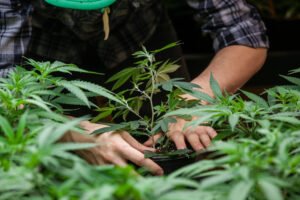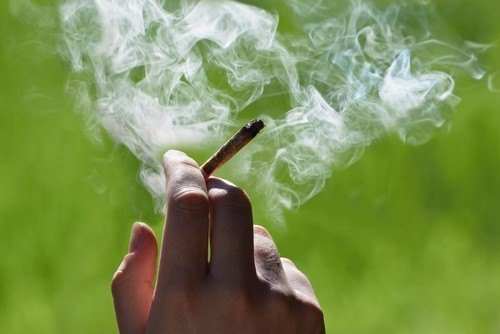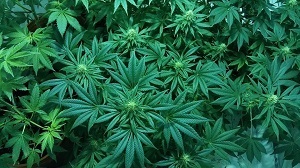
HS 11358 prohibits the unlawful cultivation of marijuana in California.
Health & Safety Code § 11358 HS defines the crime of illegal cultivation of marijuana. Here are five key things to know:
- Adults 21 and over are now permitted to grow up to 6 cannabis plants for recreational use in California.
- Growing more than 6 plants is a misdemeanor carrying up to 6 months in jail and/or $500.
- It is an infraction if someone aged 18-20 cultivates marijuana, punishable by up to $100.
- Common defenses are that the marijuana belonged to someone else or that the police found the marijuana through an unlawful search and seizure.
- Medicinal marijuana patients and caregivers may cultivate up to 6 mature plants, 12 immature plants, or a greater amount consistent with the patient’s reasonable needs.
Our California criminal defense attorneys will answer the following key questions in this article:
- 1. When is it legal to cultivate hash for recreational use?
- 2. What are the penalties for the unlawful cultivation of marijuana?
- 3. Does a conviction affect gun rights?
- 4. Are there defenses to accusations of unlawful cultivation?
- 5. Can I get a conviction expunged?
- 6. What about cultivating medicinal marijuana?
- 7. Are there related offenses?

Health and Safety Code 11358 HS is the California statute that punishes the illegal cultivation of marijuana.
1. When is it legal to cultivate hash for recreational use?
Since Proposition 64, it has been legal to grow marijuana for recreational use provided that:
- you are aged 21 years or older, and
- you cultivate no more than six cannabis plants at a single private residence, and
- you follow any applicable local municipality ordinances.1
Note that spouses or partners sharing a residence can cultivate no more than six plants in total. This is opposed to six plants each.2
A cultivation license is not required for the recreational growing and use of cannabis. Though unless local law permits otherwise, you must grow weed in a cultivation site that is:
- indoors or on the premises of your private property,
- in a locked space, and
- where the plants are not visible from a public place.3
The term cultivate means to:
- plant,
- cultivate,
- harvest,
- dry, or
- process
any marijuana or any part thereof.4
2. What are the penalties for the unlawful cultivation of marijuana?
If you unlawfully cultivate marijuana in California, you may:
- face criminal penalties under Health and Safety Code 11358,
- receive drug treatment, and
- petition for resentencing under Proposition 64
2.1. Penalties under HS 11358
If you are 18, 19, or 20 and grow marijuana, you can be cited for an infraction carrying $100.5
If you are 21 or older and grow more than six marijuana plants, you can be charged with a misdemeanor carrying up to six months in jail and/or $500.6
You face felony penalties for cultivating more than six plants and you:
- have a serious violent felony on your record,
- are a registered sex offender,
- have two or more prior convictions under HS 11358, or
- violate certain environmental laws in your cultivation activities.
Felony penalties are:
- imprisonment in county jail for up to three years, and/or
- a fine of up to $10,000.7
2.2. Drug treatment
Per Penal Code 1000 PC, you may avoid a conviction by completing drug treatment.
This is known as deferred entry of judgment (DEJ). You are eligible for DEJ if:
- you were arrested for the cultivation of excessive weed, and
- you are a non-violent first- or second-time offender.
2.3. Re-sentencing under Proposition 64
If you were convicted of marijuana crimes prior to Proposition 64, you may apply for resentencing or the dismissal of any charges. The court is supposed to:
- presume that you meet the criteria for resentencing, and
- grant resentencing unless it would create a risk to public safety.

Since the passage of Proposition 64 it is legal for persons 21 years of age and older, to grow up to six marijuana plants for recreational use.
3. Does a conviction affect gun rights?
A simple conviction under HS 11358 does not negate your gun rights.
4. Are there defenses to accusations of unlawful cultivation?
Our law firm has defended thousands of people charged with marijuana offenses in California. Three offenses we found to be effective in winning dismissals are:
- There was no marijuana: Perhaps the police mistook the legal plants you were growing as marijuana.
- The hash belonged to someone else: If there is a reasonable doubt as to you owning the plants, the charge should be dropped.
- The police committed an unlawful search and seizure: If we convince the judge to suppress the marijuana the police unlawfully found, the D.A.’s case may be too weak to keep prosecuting.
5. Can I get a conviction expunged?
You can get a cannabis cultivation case expunged if you complete probation or jail (whichever is applicable). An expungement frees you from many of the hardships associated with a criminal conviction.8
6. What about cultivating medicinal marijuana?
California’s “Compassionate Use Act of 1996” (the “CUA”) applies to the medicinal use of marijuana. The Act’s provisions are set forth in Health and Safety Code 11362.5 HS.
Under the CUA, you can legally grow hash for medical use if:
- you use marijuana with doctor approval to treat a serious medical condition,
- you are a primary caregiver to such a patient, or
- you are a member of a medical marijuana collective (also known as “dispensaries”).9
Medical marijuana patients and their primary caregivers may cultivate up to:
- six mature plants,
- 12 immature plants, or
- with a doctor’s recommendation, a greater amount consistent with the patient’s reasonable need.10
7. Are there related offenses?
7.1. Simple possession of marijuana – HS 11357
After the legalization of marijuana in California in 2018, adults aged 21 and over can possess:
- up to one ounce of dried weed, or
- eight grams of concentrated cannabis (hashish).
Possession laws are set forth in Health and Safety Code 11357 HS.
7.2. Possession of hash with intent to sell – HS 11359
Per Health and Safety Code 11359 HS, it is a crime for:
- anyone other than a licensed dispensary,
- to possess pot with the intent to sell it.
Selling marijuana without a license (i.e., on the “black market”) violates Health and Safety Code 11360 HS.
7.3. Selling marijuana – HS 11360
Health and Safety Code 11360 HS prohibits
- selling,
- giving away,
- importing into the state, or
- transporting for sale
any amount of marijuana or concentrated cannabis (hashish) without a state license.
Note that a criminal law exception exists for:
- the transportation of weed,
- by California medical cannabis users of pot for personal use.
For additional help…
For additional guidance or to discuss your case with a criminal defense attorney, we invite you to contact us at Shouse Law Group. We practice in Los Angeles, Santa Ana, Orange County, Long Beach, San Bernardino, Beverly Hills, Riverside, Pasadena, Glendale, and more.
For information on marijuana cultivation in Nevada and Colorado, please see our articles on:
- “Nevada laws for Cultivation of Marijuana in Nevada (NRS 453.3393),” and
- “Colorado Laws re Marijuana.”
Legal References:
- Proposition 64. California Health and Safety Code 11358 HS.
Each person who plants, cultivates, harvests, dries, or processes cannabis plants, or any part thereof, except as otherwise provided by law, shall be punished as follows:
(a) Each person under the age of 18 who plants, cultivates, harvests, dries, or processes any cannabis plants shall be punished in the same manner provided in paragraph (1) of subdivision (b) of Section 11357.
(b) Each person at least 18 years of age but less than 21 years of age who plants, cultivates, harvests, dries, or processes not more than six living cannabis plants shall be guilty of an infraction and a fine of not more than one hundred dollars ($100).
(c) Each person 18 years of age or over who plants, cultivates, harvests, dries, or processes more than six living cannabis plants shall be punished by imprisonment in a county jail for a period of not more than six months or by a fine of not more than five hundred dollars ($500), or by both that fine and imprisonment.
(d) Notwithstanding subdivision (c), a person 18 years of age or over who plants, cultivates, harvests, dries, or processes more than six living cannabis plants, or any part thereof, except as otherwise provided by law, may be punished by imprisonment pursuant to subdivision (h) of Section 1170 of the Penal Code if any of the following conditions exist:
(1) The person has one or more prior convictions for an offense specified in clause (iv) of subparagraph (C) of paragraph (2) of subdivision (e) of Section 667 of the Penal Code or for an offense requiring registration pursuant to subdivision (c) of Section 290 of the Penal Code.
(2) The person has two or more prior convictions under subdivision (c).
(3) The offense resulted in any of the following:
(A) Violation of Section 1052 of the Water Code relating to illegal diversion of water.
(B) Violation of Section 13260, 13264, 13272, or 13387 of the Water Code relating to discharge of water.
(C) Violation of Section 5650 or 5652 of the Fish and Game Code relating to waters of the state.
(D) Violation of Section 1602 of the Fish and Game Code relating to rivers, streams, and lakes.
(E) Violation of Section 374.8 of the Penal Code relating to hazardous substances or Section 25189.5, 25189.6, or 25189.7 of the Health and Safety Code relating to hazardous waste.
(F) Violation of Section 2080 of the Fish and Game Code relating to endangered and threatened species or Section 3513 of the Fish and Game Code relating to the Migratory Bird Treaty Act, or Section 2000 of the Fish and Game Code relating to the unlawful taking of fish and wildlife.
(G) Intentionally or with gross negligence causing substantial environmental harm to public lands or other public resources.
See also CALCRIM 2370.
- California Health and Safety Code section 11362.2 HS. See also People v. Null (1984) 157 Cal.App.3d 849; People v. Mentch (2008) 45 Cal.4th 274; People v. Mower (2002) 28 Cal.4th 457; People v. Villa (1983) 144 Cal.App.3d 386.
- See same. See also Be prepared when visiting our National Forests — what to do if you encounter a marijuana cultivation site, U.S Department of Agriculture.
- California Health and Safety Code 11358 HS.
- See same.
- See same. California Assembly Bill 1725 (2022).
- See same.
- California Penal Code 1203.4 PC.
- California Health and Safety Code 11362.5d HS. See also People v. Jackson (2012) 210 Cal.App.4th 525.
- California Health and Safety Code 11362.77. As to “reasonable need,” see also People v. Trippet (1997) 56 Cal.App.4th 1532. People v. Mentch (2008) 45 Cal.4th 274.
